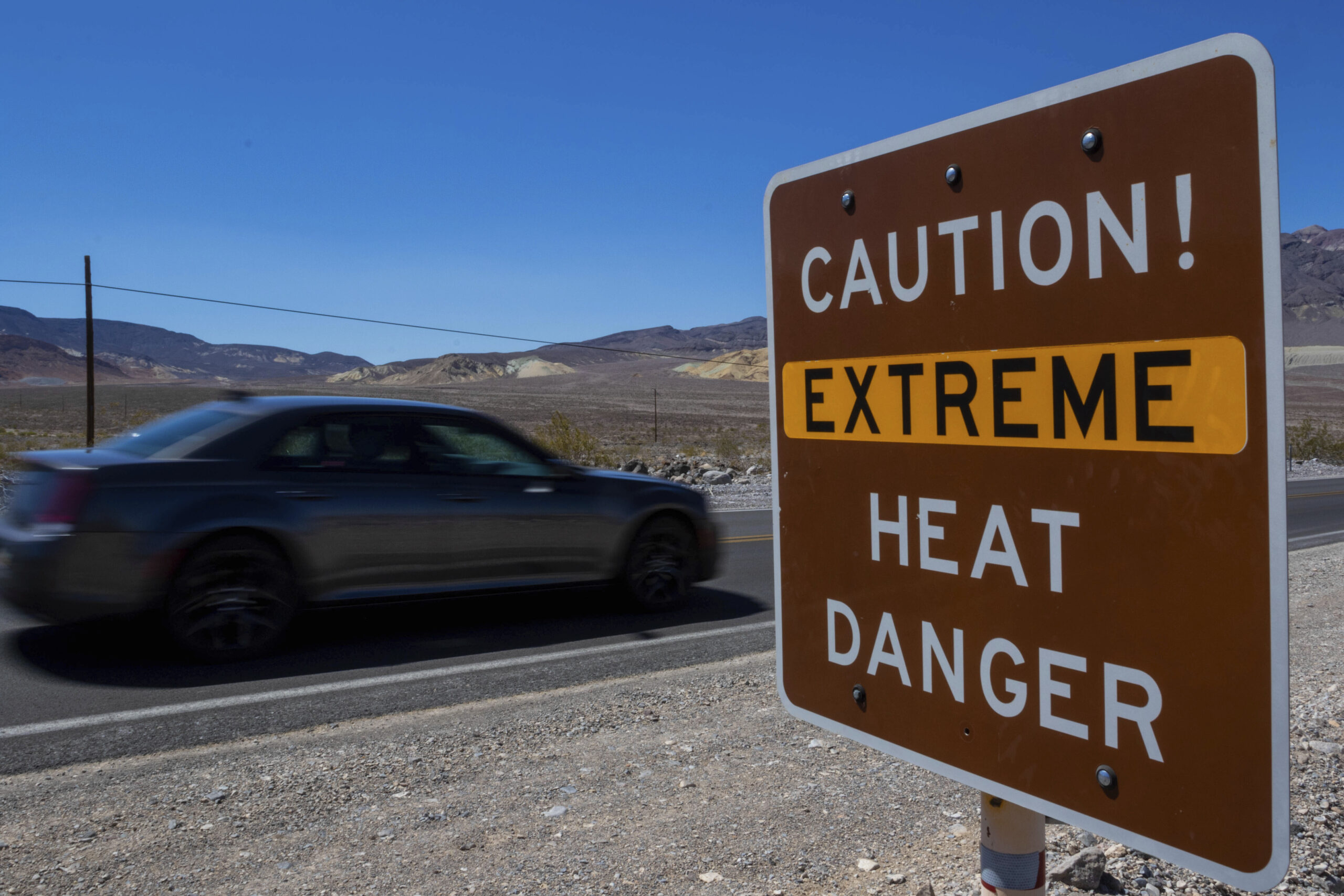Dangerous heat levels in some states of the country have caused approximately 9.8 million people to be at risk from dangerous heat levels, which represents 3% of the population.
The heat index, a measure that considers humidity and temperature to determine how hot it actually feels outdoors, indicates when the heat level is dangerous for people. Even in the shade, a person could perceive a temperature to be up to 15 degrees Fahrenheit higher, which is equivalent to 8.3 degrees Celsius, according to a New York Times report.
For the week ahead, climate authorities have asked the population to review the forecasts for the respective areas in which they live, as well as the heat index.

Main cities on alert for high temperatures
A total of 51 major cities could experience dangerous levels of heat on one or more days starting this Monday through the remainder of the week. Likewise, higher levels of heat are expected around large cities.
About 82% of Americans will see high temperatures above 89 F° in cities such as Chicago, St. Louis, Nashville, Cincinnati, Pittsburgh, Atlanta, Washington and NYC. However, these temperatures are at risk of increasing to 95 F°, according to NWS.
In the Southwest, excessive heat warnings are in effect for southern Arizona and New Mexico, where temperatures are expected to be 105 F° (40° C) to 113 F° (45° C).
Although forecasts are usually accurate, they can become less reliable when trying to determine temperatures at distant dates.
NWS advises how to manage heat in children and vulnerable people
Both young children and babies are particularly vulnerable to heat-related illness and death because their bodies are less able to adapt to heat than adults.
It is never safe to leave a child, disabled person, or pet locked in a car, even in winter. If you have a small child in your home, lock your cars, even in your own driveway.
⚠️‼️ Never, Never, NEVER leave children, disabled adults, the elderly, or pets in parked, unattended vehicles!
Never, ever, EVER leave children, disabled people, or pets in parked cars unattended!https://t.co/ZgQckCvbqU #WeatherReady pic.twitter.com/c0PYQR1Lti
— NWS Huntsville (@NWSHuntsville) June 16, 2024
Older adults, especially those with pre-existing conditions, who take certain medications, live alone, or have limited mobility. These people can experience many adverse effects on their illnesses due to the heat wave.
Similarly, people with chronic illnesses and pregnant women are more likely to have a serious health problem during a heat wave relative to healthy people.
Extreme heat stages in the United States have been associated with adverse birth outcomes, such as low birth weight, preterm birth and infant mortality, as well as congenital cataracts.
Summer temperatures have become hotter and more extreme in recent decades, and the health effects of extreme heat can be serious. This claim is supported by the Centers for Disease Control and Prevention (CDC), which determined that heat is one of the leading causes of climate-related deaths in the United States, causing more than a thousand deaths each year.
With information from NWS / CDC / New York Times
